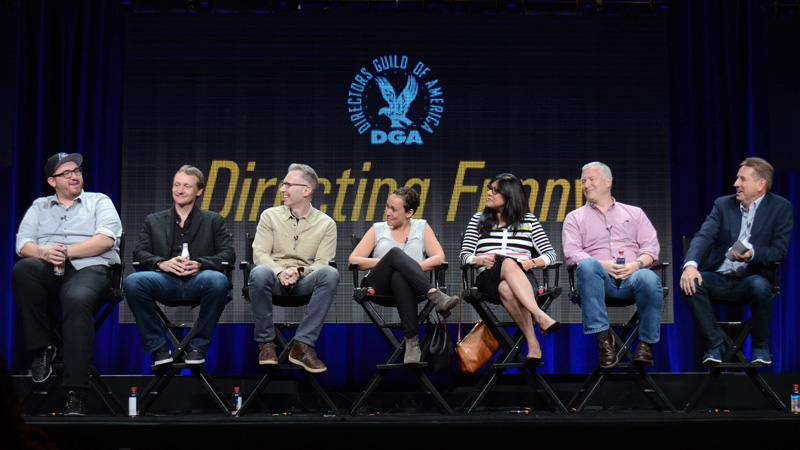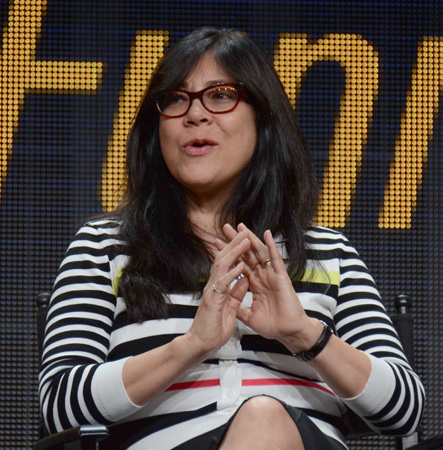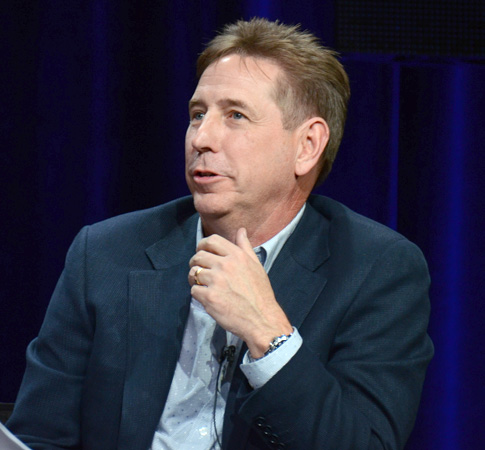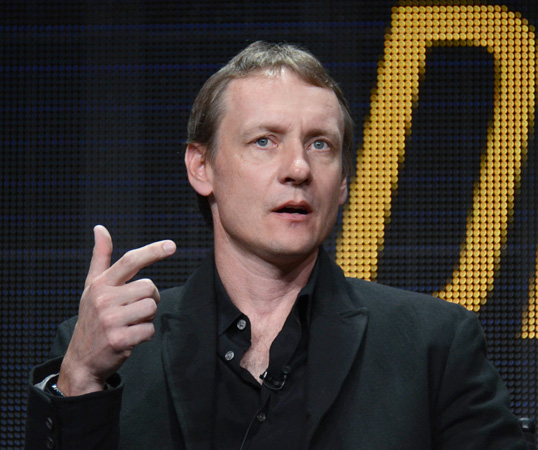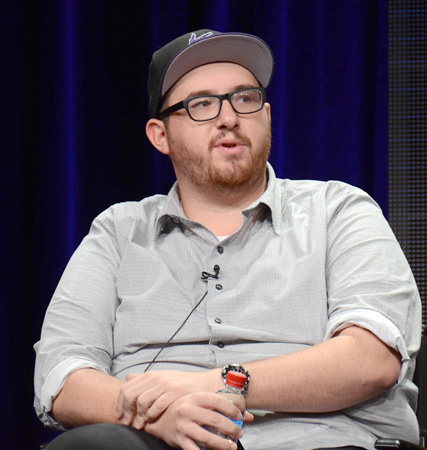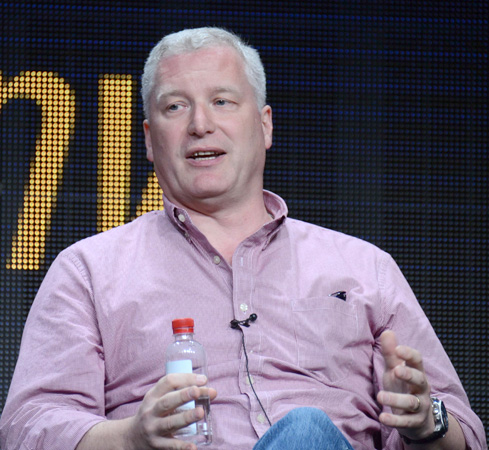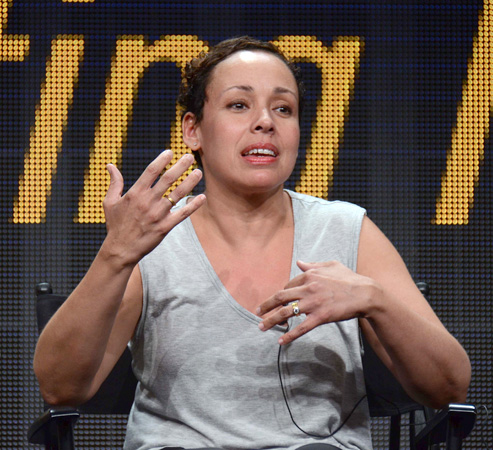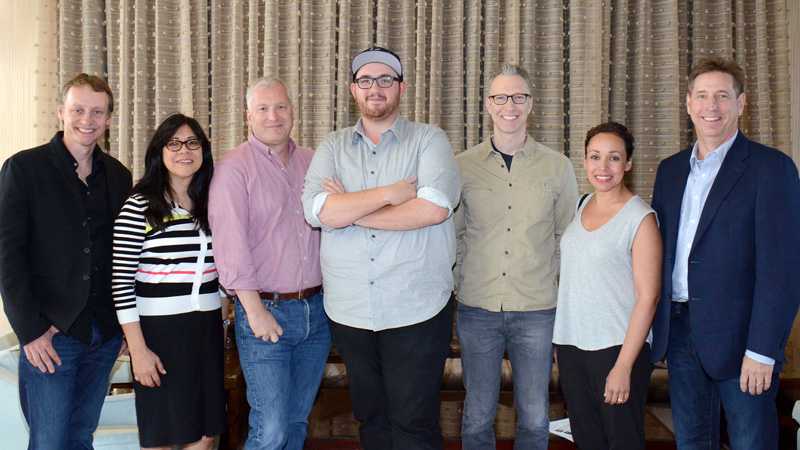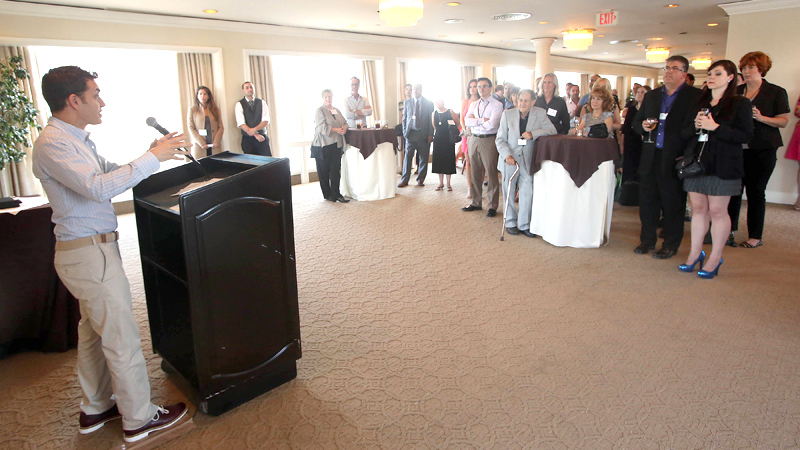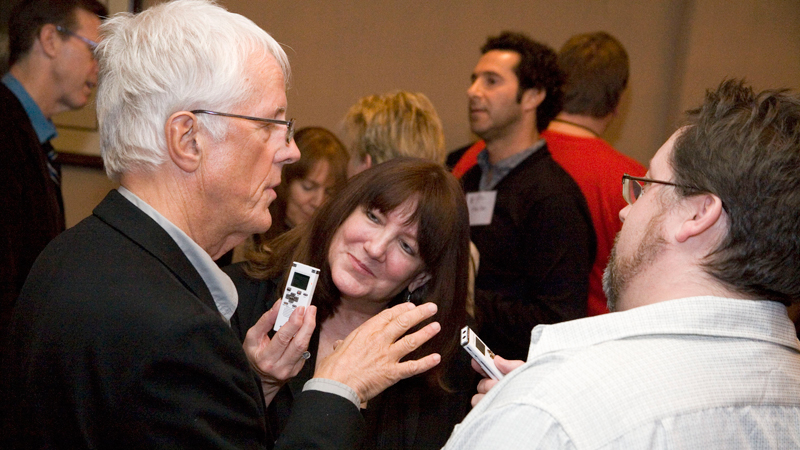On August 5, the DGA sponsored its first-ever television directing panel, Directing Funny, during the Television Critics Association annual summer gathering at the Beverly Hilton hotel in Beverly Hills, Calif.
During the hour-long event, seven TV comedy directors representing the gamut of show formats — Mark Cendrowski (The Big Bang Theory), Linda Mendoza (Brooklyn Nine-Nine), Alec Berg (Silicon Valley), Michael Blieden (Sex & Drugs & Rock & Roll), Zetna Fuentes (Jane The Virgin), Tristram Shapeero (Unbreakable Kimmy Schmidt) and Peter Atencio (Key & Peele) — discussed the craft, industry trends, the collaborative process of comedy and what makes funny, well, funny.
Directors’ on-set stories were paired with clips from their respective shows ahead of a Q&A with a room full of journalists eager to ask questions about television directing.
Panelists also discussed the challenges that come with the job, including moving from show to show, as most episodic directors do.
“We are often guests,” says Mark Cendrowski, who’s been directing sitcoms nearly 20 years. “Even if you are the main director, you may not be doing every single show, and it's always been that way.”
“I will be the new kid on the block 12 times this year — you're going into somebody else's world,” says Linda Mendoza, whose directing credits include Brooklyn Nine-Nine and Black-ish. “The only thing you can do is know your script like the back of your hand.”
While more single-camera comedy series are being shot, panelists agreed that multi-cam has the advantage of a live audience.
“We still shoot in front of 300 people so we know immediately if something's funny or not,” says Cendrowski of directing CBS’s The Big Bang Theory. “It’s instant gratification.”
Alec Berg, writer-director for HBO’s Silicon Valley, says without “thunderous applause or laughter coming from anyone” he assures the cast they’ve hit the mark. “A lot of my job as the director is to do the job of the studio audience,” he says. “You're basically a proxy for the laughs from the audience.”
When it comes to comedy, Key & Peele director Peter Atencio says format doesn’t matter. “Funny is funny, and good entertainment is good entertainment,” he explains. “It doesn’t matter what package it comes in.”
Still, what works on script doesn’t always translate to laughs on set. “The nature of comedy is that sometimes things that work on paper for months,” says Berg. “You put it onto its feet … and it doesn’t work at all, and you need to change it.”
Panelists agreed that shrinking show times affect their work.
Tristram Shapeero said he felt “relief” when Unbreakable Kimmy Schmidt, which was originally slated for NBC, landed at Netflix. “It meant just being able to put all the jokes that are cut for time could go back in,” he explains, adding that the jokes could also be edgier sans network censors.
Directors also shared highlights from their best and most difficult scenes, including Michael Blieden’s story of directing a snake on FX’s Sex & Drugs & Rock & Roll.
“The snake was cold and so the snake wouldn't act,” says Blieden of a shot in which the reptile slithers toward star Denis Leary. “The DP brought a 10K and put it over the snake to warm the floor — that was the one time that the snake moved.”
Zetna Fuentes recalled a moment on CW’s Jane the Virgin when the cast and crew hit a stride while shooting the show’s finale.
Gina Rodriguez, who plays the titular character, “was just glowing — she literally seemed pregnant,” says Fuentes. “Every shot that we were framing, we just had to see her moving in this space because it really felt like she was about to give birth that night.”
The TCA represents more than 200 professional journalists who cover television for publications across the United States and Canada.
